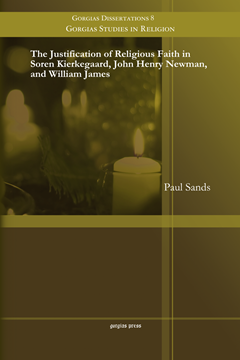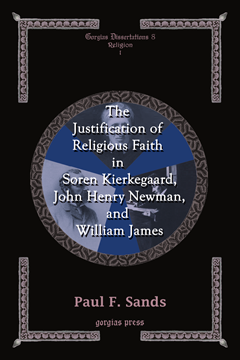Paul Sands
The Justification of Religious Faith in Soren Kierkegaard, John Henry Newman, and William James
By Paul Sands
Series: Gorgias Studies in Religion 8
ISBN: 978-1-4632-0401-3
This book examines the religious epistemologies of Søren Kierkegaard, John Henry Newman, and William James in the light of contemporary challenges to religious faith. They defended the right of persons to embrace religious beliefs that are not strictly warranted by empirical evidence and logical argumentation. Faith must not be hampered, they argued, by the demands of reason narrowly conceived. Paul Sands notes, however, important differences in the way each relates faith to reason. Sands examines the religious epistemologies of Kierkegaard, Newman, and James in the context of two "givens" characteristic of early twenty-first century culture, namely, the intellectual hegemony of probabilism and the pluralization of the Western mind.
$104.00 (USD)
The Justification of Religious Faith in Soren Kierkegaard, John Henry Newman, and William James
By Paul Sands
Series: Gorgias Studies in Religion 8
ISBN: 1-59333-126-6
This book examines the religious epistemologies of Søren Kierkegaard, John Henry Newman, and William James in the light of contemporary challenges to religious faith. They defended the right of persons to embrace religious beliefs that are not strictly warranted by empirical evidence and logical argumentation. Faith must not be hampered, they argued, by the demands of reason narrowly conceived. Paul Sands notes, however, important differences in the way each relates faith to reason. Sands examines the religious epistemologies of Kierkegaard, Newman, and James in the context of two "givens" characteristic of early twenty-first century culture, namely, the intellectual hegemony of probabilism and the pluralization of the Western mind.
$123.00 (USD) $73.80 (USD)


